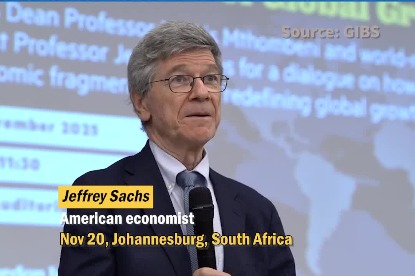Portugal questions fairness of EU-US tariff deal, warns of high costs, limited gains


LISBON - Portugal has raised concerns over the recently concluded tariff agreement between the European Union (EU) and the United States, describing it as a limited improvement that falls short of true free trade and comes at a steep cost for both sides.
The Ministry of Economy and Territorial Cohesion acknowledged in a statement that the deal -- fixing US tariffs on European goods at 15 percent -- may bring a certain degree of predictability. However, it stressed that "nothing replaces the freedom of trade" and reaffirmed Portugal's commitment to actively push for the gradual elimination of tariffs and other trade barriers.
The Confederation of Portuguese Business (CIP) expressed only "relative relief" at the deal, emphasizing that the price to pay is "high for both parties."
"When a hurricane is expected, one feels happy with a mere storm," said CIP Director-General Rafael Alves Rocha. Still, he warned that the agreed tariff levels mark a significant increase from the current average of around 2.5 percent, representing a setback for exporters and highlighting the asymmetry in the EU's and US' tariff structures.
According to CIP, the outcome is unbalanced and disadvantages European producers compared to the average customs duties imposed by the EU on American imports.
The Portuguese government has responded to potential negative consequences with financial support measures for domestic businesses.
It pointed to the "Reforcar" program launched in April, aimed at cushioning companies from adverse trade impacts. So far, 14,000 applications have been submitted under the BPF INVEST EU credit line, totaling 3.2 billion euros ($3.71 billion), with 2.5 billion euros approved and 1.6 billion euros already disbursed.
Additionally, a specific credit line - BPF INVEST EXPORT PT - was created to support export-oriented SMEs. It has received 2,600 applications worth 1.3 billion euros, of which 600 million euros have been approved.
As part of the new PT2030 incentives framework, a non-refundable grant line has also been launched to promote internationalization, targeting joint projects and collaborative strategies in external markets. The ministry announced that the first public calls for collective internationalization initiatives will open on July 31.
Despite these support measures, Lisbon's cautious tone and the business community's criticism reflect broader doubts within Portugal about the long-term benefits of the EU-US trade arrangement - raising questions about whether short-term stability has come at the expense of long-term economic balance. (1 euro = $1.16)
































